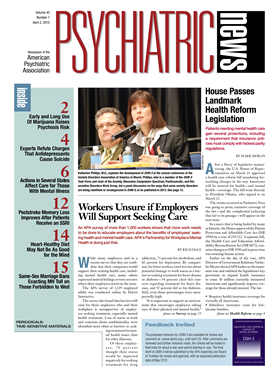Although physical, speech, and occupational therapies can help stroke patients recover lost functions, these patients do not always achieve the desired level of recovery. So efforts are under way to find novel means of restoring stroke-damaged functions.
For example, constraint-induced therapy (intense practice of motor functions that have been impaired by stroke) combined with transcranial magnetic stimulation has led to some promising results in stroke patients. Researchers are also attempting to see whether physical or speech therapy might be combined with a particular medication to achieve a desired restorative effect. And now researchers report that the SSRI antidepressant escitalopram can help stroke patients recover their memories.
The finding was published in the February Archives of General Psychiatry. The lead investigator was Ricardo Jorge, M.D., an associate professor of psychiatry at the University of Iowa.
A total of 129 people who had had either an ischemic or hemorrhagic stroke within the previous three months were studied. The researchers used the Structured Clinical Interview for DSM-IV and the Hamilton Rating Scale for Depression to make sure that none were experiencing a major or minor depression at the time of entry. This way escitalopram's impact on the cognitive damage of stroke could be evaluated independently of any antidepressant effect it might exert.
Subjects were randomly assigned to one of three treatment groups for a year. The first received escitalopram (10 mg daily for those under age 65 and 5 mg daily for those aged 65 or older). The second received a placebo pill daily. The third received another control intervention—problem-solving therapy, which is a manual-based intervention developed in the United Kingdom to treat patients with a physical illness who have depression as well.
Subjects were also given neuropsychological tests at the start of the study and at the end of the treatment to determine their attention, language, memory, and visual-spatial abilities. Changes in test scores from baseline to end of treatment were calculated for each subject. Test-score changes for the escitalopram group were compared with those for the two control groups. Also, possibly confounding variables such as age, education, time elapsed between stroke and start of treatment, and emergence of depressive symptoms during the course of the study were considered.
All three groups tended to improve on their neuropsychological test scores. However, the escitalopram group improved significantly more as far as memory was concerned than the two control groups did. Thus escitalopram, and perhaps other antidepressants, may be able to foster memory recovery in stroke patients, the researchers concluded.
And if that is the case, then how might escitalopram or other antidepressants restore memory in stroke patients? “There is consensus that the hippocampus is a critical brain structure for the encoding, consolidation, and retrieval of memories,” Jorge told Psychiatric News. “In addition, it is probably the region of the adult brain with greatest plasticity. We can speculate that the known neurotrophic effects of antidepressants would be greatest in this brain region and that these plastic changes would result in memory enhancement.”
But would ability to boost memory in stroke patients be limited to the SSRI antidepressants, or would it also apply to other types? “There are no direct comparisons of the effect of different types of antidepressants on cognitive recovery [from stroke],” Jorge said. “[Yet] I believe that this should not be an exclusive action of the SSRIs.”
The study was funded by the National Institute of Mental Health.
